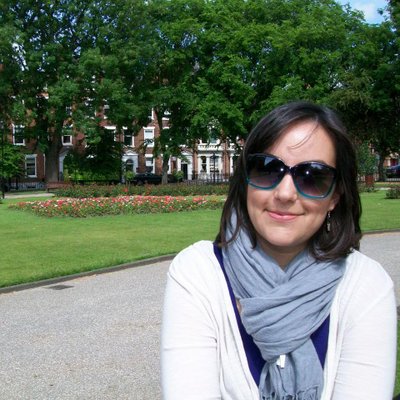Type:
Stewardship & Ecology clear filter
10:15am CST
10:15am CST
10:15am CST
11:15am CST
Cemetery Prairies: A Matter of Life and Death
Saturday March 1, 2025 11:15am - 12:00pm CST
Presenters 
Board of Directors member, Friends of Illinois Nature Preserves
Educator, botanist, nature photographer, public speaker.Talk to me about any of the above, and tell me why you are at the conference.
11:15am CST
11:15am CST
11:15am CST
11:15am CST
12:30pm CST
12:30pm CST
12:30pm CST
12:30pm CST
12:30pm CST
The Chiwuakee Prairie - Illinois Beach Lake Plain Collaborative
Saturday March 1, 2025 12:30pm - 1:00pm CST
Presenters 
Lake Plain Coordinator, Chiwaukee Prairie-Illinois Beach Lake Plain Collaborative / Lake County Forest Preserves
I am the Coordinator of the Chiwaukee-Prairie Illinois Beach Lake Plain Collaborative. I assist the Collaborative with their organizational needs, seeking funding sources for habitat management and conservation strategies, and overall project management in the Lake Plain. I also assist...
Read More →
Saturday March 1, 2025 12:30pm - 1:00pm CST
Room 47
1:15pm CST
1:15pm CST
1:15pm CST
1:15pm CST
Death By A Thousand Cuts - Encroachment!
Saturday March 1, 2025 1:15pm - 2:00pm CST
Presenters 
Director Department of Resource Management, Forest Preserves of Cook County
I have worked for the Forest Preserves of Cook County since 1990 and am currently in the role of Director of our department of Resource Management. The day-to-day duties of this position is overseeing our Resource Crews, Project Management, Conservation Corps, Fisheries, Wildlife...
Read More →
1:15pm CST
Environmental DNA: what land stewards want to know about this new technique
Saturday March 1, 2025 1:15pm - 2:00pm CST
Presenters 
Lead Conservation Ecologist, Field Museum
Aster Hasle is a Lead Conservation Ecologist with the Field Museum's Keller Science Action Center. Aster brings their ecology and Geographic Information Systems background to the Action Center's Chicago Region Conservation Programs. Recent projects include a monarch community science...
Read More →
Saturday March 1, 2025 1:15pm - 2:00pm CST
Room 49
1:15pm CST
2:15pm CST
2:15pm CST
2:15pm CST
Propagation of Hemi-parasitic Native Plants
Saturday March 1, 2025 2:15pm - 3:00pm CST
Presenters 
Conservation Seed Program Manager, Citizens for Conservation
I have roughly twenty years of native plant growing experience and studying our local ecosystems. I enjoy sharing what I have learned with others while continuing to learn more. If you want to grow native plants... results may vary! Be patient and do not give up! Let's have a conversation...
Read More →
Saturday March 1, 2025 2:15pm - 3:00pm CST
Room 28
2:15pm CST
2:15pm CST
Stewardship Decisions: Balancing Risks & Rewards
Saturday March 1, 2025 2:15pm - 3:00pm CST
Presenters 
Ecologist, Tallgrass Associates
Prairies in southwest Cook CountyBlazingstars (Liatris sp.)Restoration and Management Natural Areas
Saturday March 1, 2025 2:15pm - 3:00pm CST
Room 48
2:15pm CST
3:15pm CST
3:15pm CST
3:15pm CST
Brush pile burn scar recovery trajectories and techniques for speeding recovery
Saturday March 1, 2025 3:15pm - 4:00pm CST
Presenters 
Soil Ecologist, Center for Tree Science, The Morton Arboretum
As the Soil Ecologist at The Morton Arboretum, Meghan Midgley studies plant-soil interactions in a changing world. Specifically, she aims to understand how interactions among plants, microbes, and soil mediate ecosystem-specific responses to environmental changes. Her research encompasses...
Read More →TD
Research Coordinator, The Morton Arboretum
3:15pm CST
3:15pm CST
Oak woodland restoration at Somme Woods: summer scything and seeds work make all the difference
Saturday March 1, 2025 3:15pm - 4:00pm CST
Presenters 
Stewardship volunteer leader, I serve as a stewardship volunteer at Cook County FPD, North Branch Restoration Project, Somme Preserves. I volunteer at a variety of Illinois Nature Preserves and serve on the Board of Friends of Illinois Nature Preserves
Life is beautiful and each day is a precious gift I accept with gratitude. I strive to live it with humility, a sense of humor and detachment. Towards all who cross my path I offer love, kindness and positivity. I dedicate each day to serve the earth and its creatures. Let's do it...
Read More →
Saturday March 1, 2025 3:15pm - 4:00pm CST
Room 44
3:15pm CST
3:15pm CST
3:15pm CST
Red Gate Woods: The Forest Preserves of Cook County’s Largest Ever Ecological Restoration Project
Saturday March 1, 2025 3:15pm - 4:00pm CST
Presenters 
Resource Project Manager, Forest Preserves of Cook County
Troy has more than 19 years of professional experience in ecological and habitat restoration, project management, and environmental consulting. As an ecological contractor, he has worked with private landowners, corporations and businesses, park districts, and forest preserve districts...
Read More →
Resource Specialist, Forest Preserves of Cook County
I am an ecological restoration and forestry professional with 11 years of experience working with local government, private contractors and conservation corps programs in northeastern Illinois. I help manage and oversee contracted land management work at the Forest Preserves of Cook...
Read More →
Saturday March 1, 2025 3:15pm - 4:00pm CST
Room 26
3:15pm CST
4:15pm CST
4:15pm CST
Lessons in Using Rope Dodder to Control Tall/Canada Goldenrod and Sawtooth Sunflower
Saturday March 1, 2025 4:15pm - 5:00pm CST
Presenters 
Conservation Seed Program Manager, Citizens for Conservation
I have roughly twenty years of native plant growing experience and studying our local ecosystems. I enjoy sharing what I have learned with others while continuing to learn more. If you want to grow native plants... results may vary! Be patient and do not give up! Let's have a conversation...
Read More →
Saturday March 1, 2025 4:15pm - 5:00pm CST
Room 45
4:15pm CST
Mushrooms of Illinois
Saturday March 1, 2025 4:15pm - 5:00pm CST
Presenters 
Mycologist - Principle Senior Scientist, Illinois Natural History Survey
Dr. Andrew Miller is a mycologist and serves as the Director of the Herbarium at the Illinois Natural History Survey at the University of Illinois Urbana-Champaign. A native of Illinois, Andy began his formal education in mycology (the study of fungi) under the tutelage of Dr. Andrew...
Read More →
4:15pm CST
4:15pm CST
4:15pm CST
4:15pm CST
4:15pm CST


